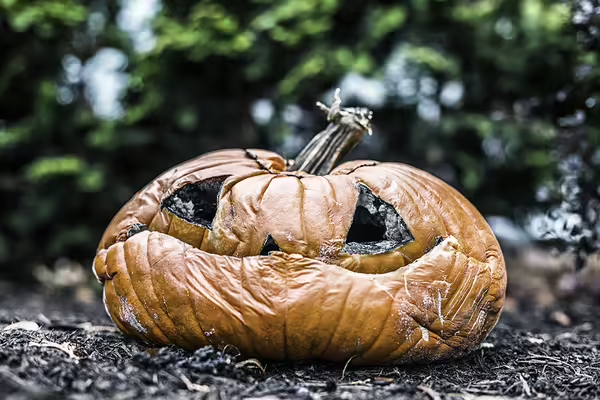
CHICAGO – This Halloween, don’t trash your pumpkins, smash them with University of Illinois Extension and Plant Chicago.
Illinois is one of the top producers of pumpkins in the U.S., but when jack o’ lanterns are past their prime, many end up in the trash. In Cook County, 37% of landfill material is food waste, a major source of the greenhouse gas methane.
To divert pumpkins from landfills, Illinois Extension in Cook County is partnering with Plant Chicago to host a Pumpkin Smash from 9 a.m. to 1 p.m. on November 7 at 4459 S. Marshfield Ave., Chicago.
At their inaugural Pumpkin Smash in 2019, Extension staff collected 3.17 tons of pumpkins, a goal they hope to surpass in 2020.
“By diverting organic waste materials from landfills and recycling it into compost we protect our environment by reducing the amount of methane gas released in to the air,” says Kathryn Pereira, Extension Local Food Systems and Small Farms Educator for Cook County. “Removing organic materials such as food waste and Halloween pumpkins from your garbage also decreases the cost of municipal waste disposal.”
With the average Chicago metropolitan landfill tipping fee more than $60 per ton, Pereira added the savings would be considerable if all 2 million Cook County households removed pumpkins from the waste stream.
Participants can collect pumpkins for their neighborhood, school or workplace and drop off their pumpkins for free at this outdoor event. Candles, ribbons or any other synthetic material should be removed. Participants must wear a face covering and maintain social distancing.
Pumpkin Smash events are available throughout Cook County. Visit the SCARCE website at http://www.scarce.org/pumpkins to find an event.
For those who cannot attend the event, composting may still be an option through their local trash provider, private service, or by starting a compost pile.
“Composting can be done on a community level through events or municipal waste collection, but it can also be done on a small scale, Pereira says. “You can compost in your own backyard using a compost bin or even in your apartment with a worm bin.”
To learn more about composting, visit go.illinois.edu/StartComposting.
SOURCE: Kathryn Pereira, Extension Local Foods Small Farms Educator, Cook County
WRITER: Emily Steele, Extension Media Communications Coordinator
Illinois Extension leads public outreach for University of Illinois by translating research into action plans that allow Illinois families, businesses, and community leaders to solve problems, make informed decisions, and adapt to changes and opportunities.